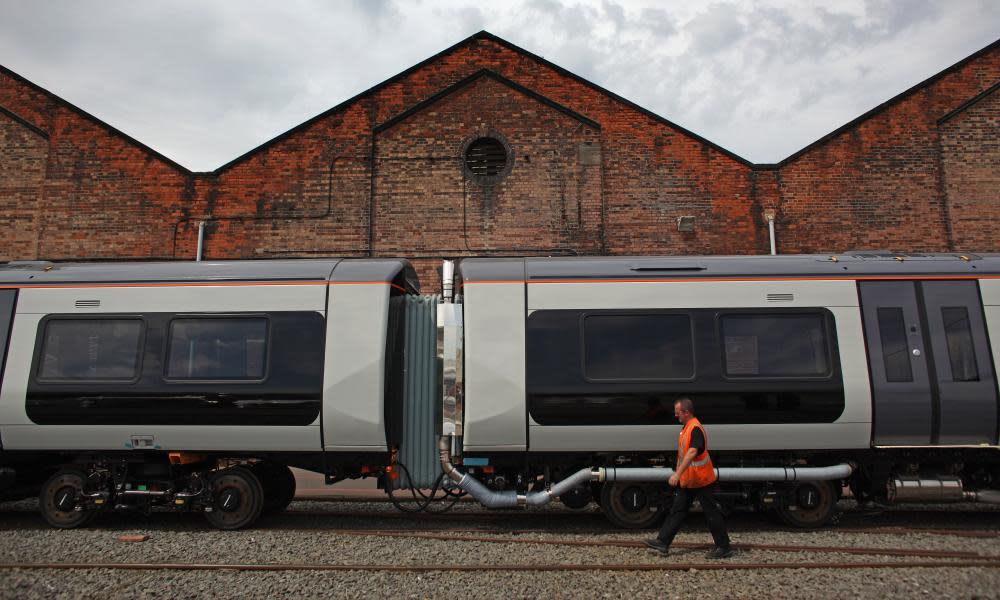Chris Grayling tells Japan: some of our trains are superior to yours

Transport secretary Chris Grayling is lobbying Japan, the country that pioneered modern high-speed trains, to buy rolling stock from Derby as part of the government’s post-Brexit trade push.
In a counter-intuitive move, Grayling has urged Japanese ministers to purchase trains from the UK. Japan’s bullet trains are among the best in the world, but Grayling believes slower suburban rolling stock is better manufactured in Britain.
A Canadian company, Bombardier, designs and builds trains from Derby’s Litchurch Lane, where carriage manufacturing dates back to the 1870s. Bombardier’s Aventra model has won a series of high-profile UK contracts in recent years, including 665 trains worth £869m to be supplied to Abellio on the East Anglia rail franchise. This deal, signed last year, secured 1,000 engineering jobs at the factory over the next decade.
During a visit to Japan in September, ostensibly to encourage investment in Britain’s roads, railways and ports, Grayling told transport minister Keiichi Ishii that the Derby trains were superior to Tokyo’s.
Last week, Grayling also told MPs: “I have an ambition to see that train [Aventra] deployed in other countries as well. I have already told the Japanese transport minister that, although he has good trains on the suburban network in Tokyo, our Bombardier trains from Derby are better and that he should buy some for his network.”
Grayling’s backing for Derby comes only five years after the site’s future looked bleak because Germany’s Siemens was picked for a lucrative contract to build trains for London’s Thameslink Network. Bombardier is now also building 200 metre-long Aventra trains that can carry about 1,500 passengers for the Elizabeth line, the new east-to-west London route formerly known as Crossrail.
A Department for Transport source added:“Every government department has been tasked by [prime minister] Theresa May with broadening our exports. What Chris was saying to the Japanese was, ‘Yes, your train engines are great, but actually your suburban trains are inferior to what’s produced by Bombardier’. It’s not only our rolling stock. After Crossrail, the High Speed Two railway, and the proposed [north-to-south London] Crossrail 2, we’re probably the world leaders in tunnelling. We can export that expertise.”
Norman Baker, the Liberal Democrats’ former coalition government transport minister, praised Grayling’s thinking. He said: “This might seem counter-intuitive, but these kind of leftfield ideas sometimes work. It’s best to celebrate our manufacturing by exporting.”
James Cleverly, a leading Conservative Brexiter who sits on the House of Commons’ influential international trade committee, spoke with officials at an event hosted by the Japanese embassy this month. He said: “Everyone I talked to stressed the importance of the Anglo-Japanese business relationship. This is the perfect opportunity to start pushing for not just inward investment, like Nissan’s car manufacturing plant in Sunderland, but by selling our products to the Japanese. Post-Brexit we want to maintain and build on these kind of trading relationships with our friends.”
Japan’s investment in the UK also includes Hitachi Rail Europe’s £82m train manufacturing plant in Newton Aycliffe, County Durham. However, Hitachi chairman Hiroaki Nakanishi warned before June’s EU referendum that a Brexit vote could result in a reduction of investment and job losses at the Newton Aycliffe site.

 Yahoo News
Yahoo News 
